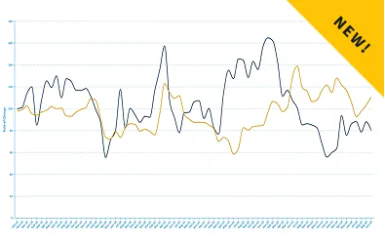Entrepreneur: Work-Life Balance Key To Keeping Millennial Employees Engaged
"I quit" are two words that could describe the mood of the workforce for the last few years. These words have been literally (or figuratively) uttered by many employees across industries and are dreaded by employers. Most people have not realized that many millennials have or will tender their resignations over the next several years. That's because they are the largest generation in the U.S. labor force, making up more than one-third of the workforce, according to Pew Research Center. By the end of 2025, they will make up 75% of the global workforce.
Millennials — like many other workers — are taking advantage of the employee-friendly job market and making employment changes all over the country. So, if you are not keeping millennial expectations in mind when creating your work environment, you will alienate most of the talent in the current and future job market.
If you are shocked by the fact that the workforce is mostly millennials, you are not alone. However, by embracing this reality and making your company reflect it, you can ensure access to the largest sector of today's candidate pool while retaining the millennial employees who currently work with you.
The changing impact of millennials in the workforce
Over the last several years, millennials have left their mark on the workplace. Millennials have always demanded more work-life balance, flexible work schedules and better parental leave. When the pandemic hit, however, millennials' priorities shifted overnight. Many workers were given remote work and flexible schedules. Suddenly, they could do a load of laundry, walk the dog or help with kids' homework without leaving the "office" during the workday.
At the same time, employers were truly engaging with the millennial workforce. Companies realized that millennials were not fresh out of college anymore. Instead, employers began to see millennials as working parents, freelancers, entrepreneurs and digital nomads.
Millennial expectations changed, and the pandemic highlighted the new generational identity. For instance, where work-life balance used to mean less time working and more time hanging out with friends, it now meant having the time to jet off to stay in another state or hit the road in an RV with the family — while still being able to work each day. Millennials work to provide for themselves and their families and fuel their preferred lifestyles, not the other way around.
You can do several things to attract and retain millennial employees and keep them satisfied. Start by asking, "What do millennials want in a job?" A lot of these actions might be simple changes in company policy that can make a major difference. Here are some ways you can engage millennial workers, boost job satisfaction and ensure that they stick with your organization for the long term:
1. Prioritize remote (or hybrid) work models
Competitors that offer remote or hybrid work arrangements will be in much better positions to attract top talent than those that do not. Millennials care about working from home and have made it a priority in their job searches. Almost 85% of millennials said remote work was important in an Axios poll.
At the very least, you could offer a hybrid model that extends work-from-home periods. After all, millennials still want the flexibility to achieve some kind of work-life balance and take care of other responsibilities during the day.
Read the full article from Entrepreneur here.
Please Sign in to View
Log in to view member-only content.
If you believe you are receiving this message in error contact us at memberservices@rvia.org.

